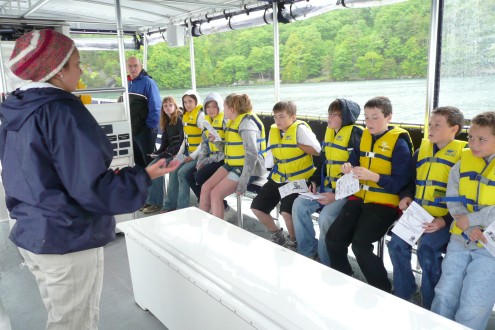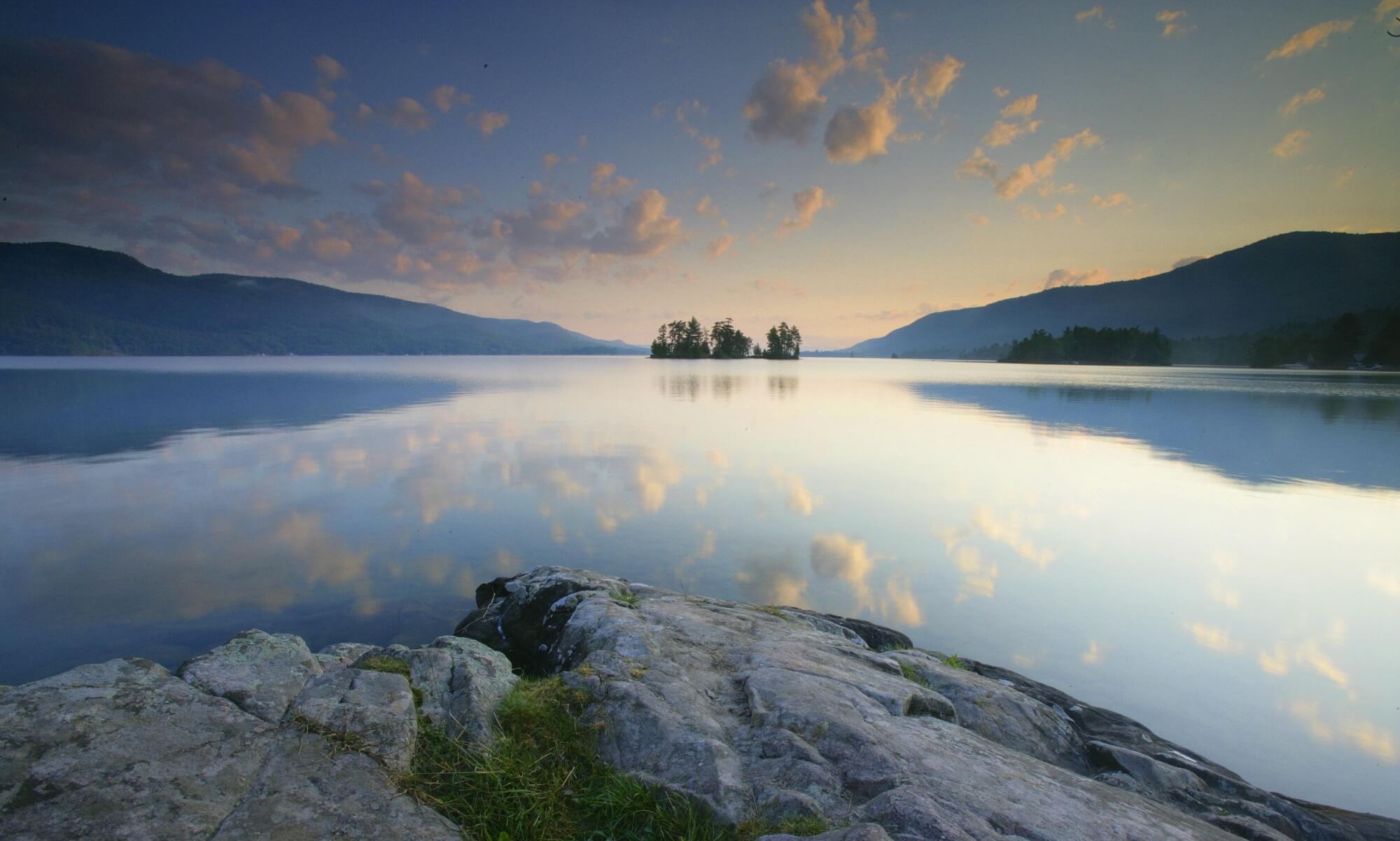
Students from Putnam were the first to board the Lake George Association’s Floating Classroom, through a grant by the Froehlich Foundation which aids local school districts. Helen Froehlich was a longtime resident of Huletts Landing.
Due to a grant from the Froehlich Foundation, elementary students from Putnam School District were the first to venture out on the Lake George Association’s Floating Classroom this spring. And this was the first time in the 20-year history of the Floating Classroom that the Putnam School District has participated. Students from Warrensburg, Glens Falls, South Glens Falls, Ticonderoga and Lake Luzerne will also be going out before the school year ends. Because of a generous grant from the Froehlich Foundation, the program can be provided at no cost in 2010 to school districts in the Lake George watershed.
“The program tied in perfectly with the New York State science curriculum for our 4 – 6th grade students,” said Meredith Beeman, a teacher at Putnam Station School. “The trip included scientific investigations and methods, and information about the water cycle and the local ecology of Lake George. The students had a fantastic time. They talked about the equipment they got to use for days. The program provided a real world hands on science experience for our students. The highlight was catching plankton and examining them under the microscopes. This activity was a good primer for the students as they are set to begin studying invasive aquatic plants in the Adirondacks using our new wireless microscope,” she said.
Last year the Lake George Association purchased and launched a new 40-ft boat, a custom-built Floating Classroom for schools throughout the Lake George Watershed and beyond. On the boat, students investigate the Lake George ecosystem, and engage in the hands-on science behind keeping the Lake’s water clean and healthy. Students catch and identify tiny animals called zooplankton that live in the lake and they measure the water’s quality and clarity.
“We instill in the students a sense of life-long stewardship for the Lake,” said Kristen Rohne, a former Queensbury student who took a trip on the floating classroom during her 7th grade year, and grew up to become the LGA’s watershed educator. “It’s an experience the students will never forget… I know I never did! The program helps the students see how important it is for people to protect Lake George.”
On the boat, students have the opportunity to use the actual tools of the water ecology trade: Secchi disks, plankton nets, field microscopes and Van Dorn bottles. Students measure water temperature, pH and dissolved oxygen, all are important indications of lake quality. In addition, they gain an understanding of how Lake George is different from other lakes, and learn about the Lake’s geographical history, and learn about threats to the lake from invasive species and pollution.
For the first time this summer, the LGA will be offering Floating Classroom trips for the general public on Wednesdays during July and August, leaving the dock at Shepard Park in Lake George at 11 am. Reservations are required. Scouting groups, homeowner associations and others are also welcome to book a trip for their group.
The Floating Classroom will visit Huletts twice this summer courtesy of the Friends of Historic Huletts.
